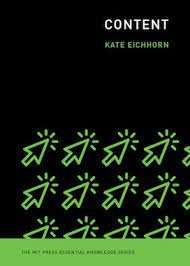TEN-CENT FLOWERS AND OTHER TERRITORIES - CHARITY E. YORO
This is an example of the principle of, “if I know you in real life, I will read your book” which is to say that I know Charity, aka Cha-Cha, personally, we met during the Peace Corps. I did not know at the time that Charity was a poet or even interested in poetry, which I regret, had I know I would have tried to talk poetry with her. I haven’t seen her or spoken to her in person since we hung out a decade ago in the highlands of Madagascar but it seems like since then she’s gone on to start a family and get a degree in poetry. This seems to be her first book. Obviously, given my personal connection, I was most interested in the poems that revolve around her experience in Madagascar. This is a minor concern in the collection, only one of the poems seems dedicated to the subjects, and it’s a concrete poem (i.e. the poem itself is in the shape of Madagascar) which I thought was interesting. Like me, she seems ambivalent at best about her time there and wonders about how much good she was doing versus how much she extracted from the experience. She calls herself out as being no better than the French minors (tho, to quibble, while the French are the historical colonial overlords and the present-day sex-tourists, the mining is mostly done by Rio Tinto, a British/Australian concern) which is a hard sentiment I can get on board with, though one I wish she explored deeper. However, I get that this isn’t the main concern of the collection, no matter how much I wish it was. She mostly focuses on her home state of Hawaii and what it feels like to be from a place that is mostly thought of as vacation destination and a “paradise” but which, in reality, is a deeply exploited colony and imperial holding of the USA. Having someone tell you that where you're from is their “least favorite island” must be a mindfuck. Likewise for seeing rich tourist after rich tourist engaging in a weird simulacrum of your culture while your home becomes too expensive for you or your family to live in. Yoro does a good job rendering this, I could sense the rage and hopelessness in the poems. However, while a native of Hawaii, in the sense that she was born and grew up there, I don’t believe that Yoro is native Hawaiiin, at least not fully (given her last name and having met her in person, without seeming too out of school, I assume she is, at least, partly Filipino. I could certainly be wrong about that and if so I apologize) and I would have liked more poetic investigation of that particular standpoint, i.e. not YT colonizer but also not fully native. That’s a pretty interesting place to be in my mind, there’s a subtlety and nuance that’s really tricky and hard to address clearly, and I’d like to think more about it, tho this collection seems more oriented around a “native” viewpoint. Irregardless, I liked the collection overall, the stuff about being a mother and parent was fascinating and engaging, the parts about being upset and impotent in the face of colonialism hit home and her facility with form was admirable. I hope she’s able to keep writing interesting poems.



















